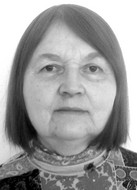Student sport managers' attitudes to professional competencies
Фотографии:
ˑ:
Dr.Sc.Philos., Professor E.Yu. Novikova1
Dr.Sc.Hist., Professor I.M. Kornilova1
PhD, Associate Professor Е.V. Malakhova1
PhD, Associate Professor A.V. Galukhin1
1Plekhanov Russian University of Economics, Moscow
The study analyzes the student sport managers’ attitudes to the professional competencies in the context of the individual professional career strategies and the relevant educational paths. The study found the students rating high the competencies cultivated by the educational process for their professional careers; with the certain dichotomy between the highly rated professional competencies and lower rated general cultural competencies as reflected in the individual learning behavior and strategies. The high academic progress rates were found correlated with the high rates of the general cultural competencies and high priority given to the elective humanitarian special courses. The students with high research and/or educational ambitions were tested to rate higher the general cultural competencies. The initiatives to bridge the gaps in the specific professional versus general cultural competency rates shall be designed based on the relevant integrated education methodologies as follows: (1) research methodologies to support the athletic progress; ( 2) facilitating social environment building for the physical education and sports sector; (3) securing due synergy in the general cultural competency building in the professional sport training system; and (4) modern world outlook building in the individual sports-prioritizing cultures.
Keywords: sports, competencies, profession, culture, personality, student.
References
- Averyasova J.O. Sovershenstvovanie sistemy normativno-pravovogo obespecheniya razlichnykh napravleniy fizicheskoy kultury i sporta v Rossii [Enhancement of system of regulatory support of various directions of physical culture and sport in Russia]. Mater. Vseros. nauch.-metod. konf. "Strategiya razvitiya sportivno-massovoy raboty so studentami" [Proc. nat. res.-method. conf. "Strategy for development of mass sports activities with students"], 2015, pp. 12-14.
- Allyanov Yu.N., Averyasova Yu.O. Samoobrazovatelnaya deyatelnost studentov v protsesse izucheniya distsipliny «Fizicheskaya kultura» [Students' self-reliant learning in Physical Education discipline studying process]. Mezhdunar. nauch.-prakt. kongress 'Natsionalnye programmy formirovaniya zdorovogo obraza zhizni': v 4 t. [Proc. Intern. res.-practical congress 'National healthy lifestyle cultivating programs', in 4 vol.]. RSUPhESYT publ., 2014, pp. 15-21.
- Andryushchenko L.B., Filimonova S.I. Fizicheskaya kultura i studencheskiy sport v novykh sotsialno-ekonomicheskih usloviyakh Rossii: sovremenny vzglyad i tochki rosta [Physical education and academic sports in new socio-economic national situation: modern vision and growth points]. Teoriya i praktika fiz. kultury, 2018, no. 2, pp. 73-76.
- Baeva I.A. Psikhologicheskaya bezopasnost obrazovatelnoy sredy: teoreticheskie osnovy i tekhnologii sozdaniya. Avtoref. dis. dokt. psikh nauk [Psychological safety of educational environment: theoretical foundations and design technologies. Doct. diss. abstract (Psych.)]. St. Petersburg, 2002, 45 p.
- Kuz'menko P.A. Verbalny intellekt sportsmena kak faktor formirovaniya tselostnogo obraza dvigatelnogo deystviya [Athlete's verbal intelligence as a factor in formation of integral image of motor action]. Teoriya i praktika fiz. kultury, 2016, no. 4, pp. 29-30
- Lubysheva L.I., Zagrevskaya A.I. Struktura i soderzhanie sportivnoy kultury lichnosti [Structure and content of personal sports culture]. Teoriya i praktika fiz. kultury, 2013, no. 3, pp. 7-16.




 Журнал "THEORY AND PRACTICE
Журнал "THEORY AND PRACTICE